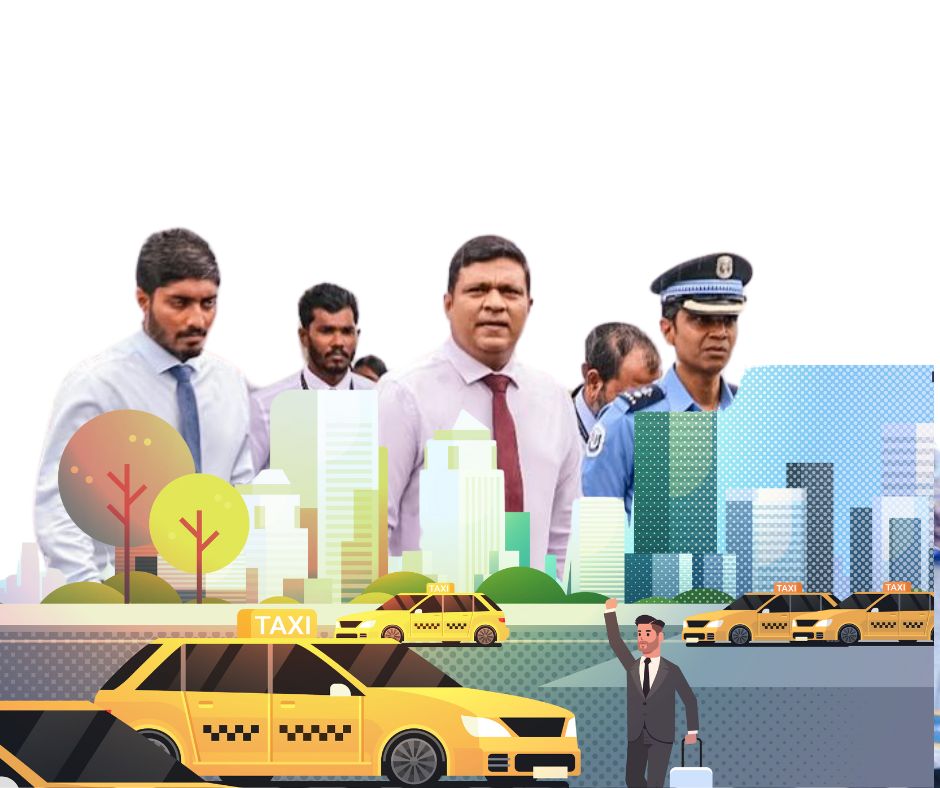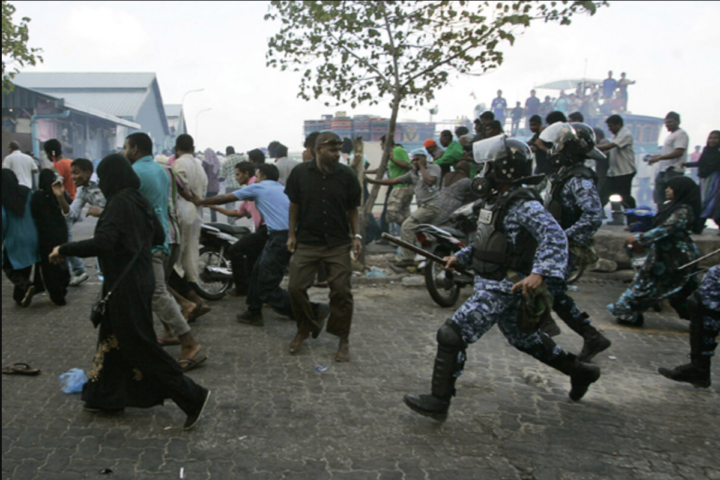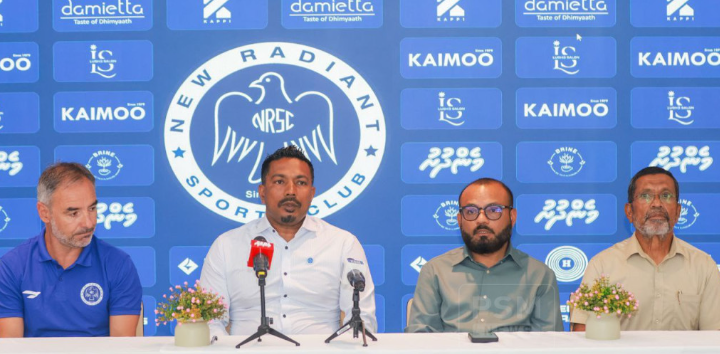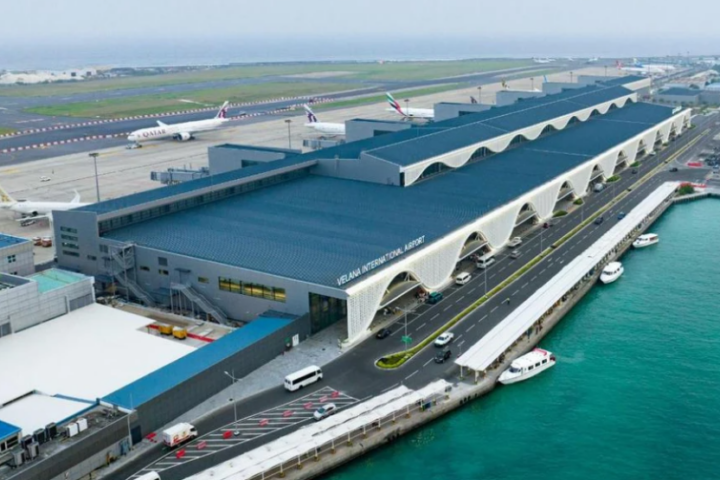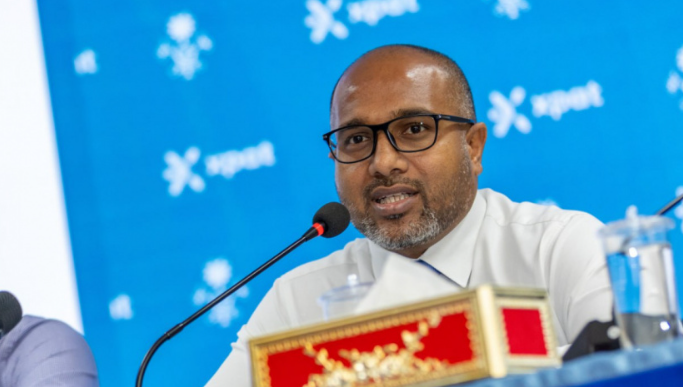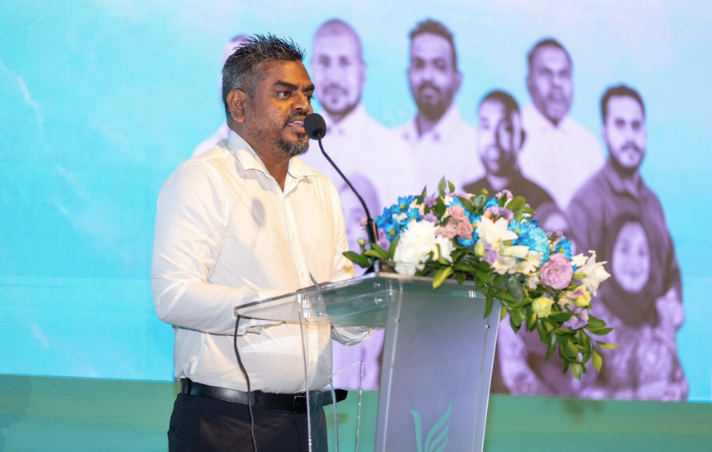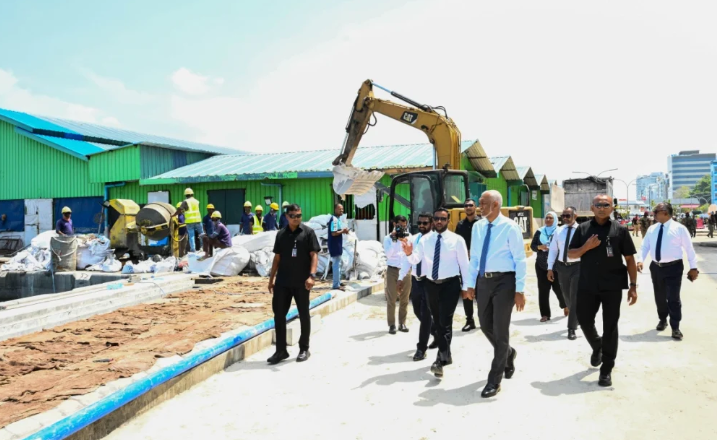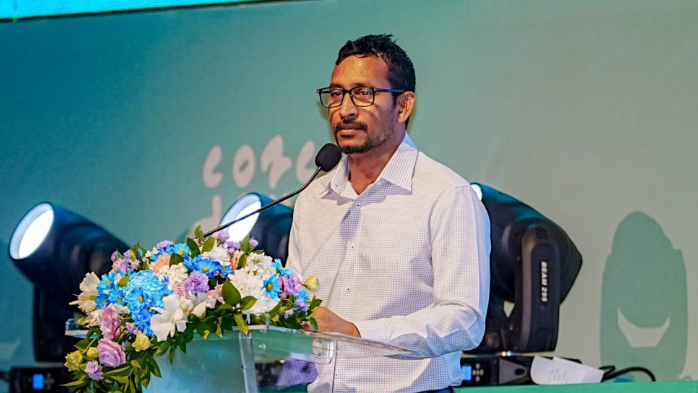MALÉ — The crush of taxis jockeying for fares at the Velana International Airport’s arrivals area has become an enduring labyrinth for tourists, emblematic of the Maldives’ inability to impose order on a crucial part of its vital tourism industry.
Successive governments have vowed reforms, but powerful taxi syndicates maintaining a firm grip on the lucrative airport traffic have thwarted attempts at regulation.
“Administrations have grappled with this issue repeatedly without resolution,” said Ali Fauzee, a prominent entrepreneur. “The taxi cartels fiercely oppose regulations, effectively handcuffing officials with threats of disruptive protests against any proposed changes.”
For visitors and locals alike arriving at Velana, the initial experience is a frenetic scramble. Drivers aggressively solicit passengers, some quoting exorbitant fares while others refuse certain destinations. Despite putatively fixed rates, tourists are routinely overcharged with inflated fees to the capital Malé and Hulhumale.
“It was harrowing — after the long journey, we were bombarded by people trying to negotiate cab fares,” said a visitor from a neighboring country, who requested anonymity. “We had no sense of what constituted a fair price.”
President Mohammed Muizzu’s administration, elected on an anti-corruption platform, pledged to overhaul the long-dysfunctional taxi system.
This week, scenes of particular chaos at Velana’s arrivals prompted public outrage, and the transport minister toured the area, temporarily deploying police to restore order. But a lasting fix remains elusive.
In an interview, Mr. Fauzee outlined potential comprehensive reforms, such as constructing dedicated taxi queues where drivers must accept any destination, or installing e-payment kiosks to curb overcharging, akin to the local ferry system.
After recent turmoil, the transport minister posted on X, formerly Twitter, that the issue was under control with police assistance.
“We’ve seen such temporary measures before — this problem keeps resurfacing and attracting media attention,” said Ahmed Mujthabaa, a guest relations officer at an airport kiosk, visibly exasperated.
Mr. Fauzee suggested the airport company, MACL could establish its own fleet of taxis and chauffeur services as a potential solution.
But despite sporadic protests by current operators against reforms that could undercut their control of lucrative Malé and Hulhumale routes, no significant progress has been achieved. The airport company’s management appears distracted by recent internal issues including drug incidents and vehicle thefts.
“The persistent airport disarray casts an unfortunate pall over visitors’ first impressions of our country’s famed hospitality,” Mr. Fauzee lamented. “The Maldives deserves an orderly, reasonably priced transportation system befitting our status as a premier destination.”
For now, the new government’s actions appear stopgap, with taxi groups flexing their influence ahead of each election cycle. A permanent solution hinges on decisive management that remains elusive under the airport company’s current leadership.
